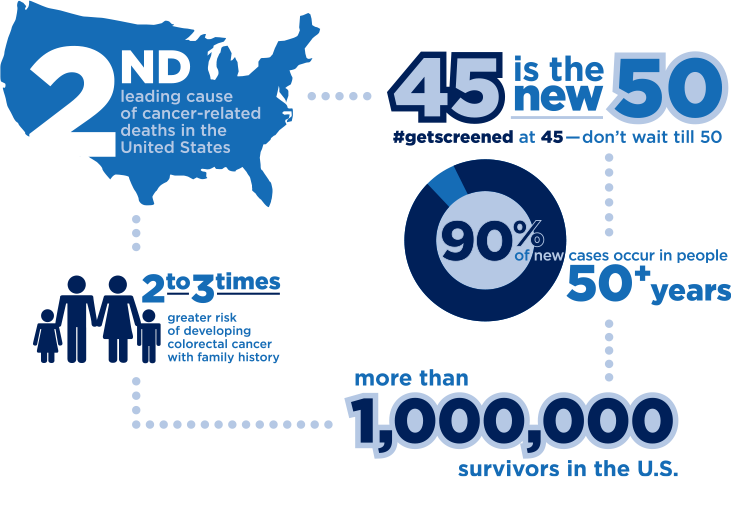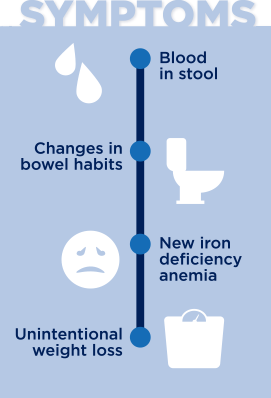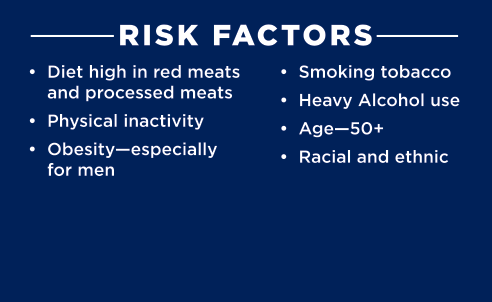Know the Facts
Western North Carolina residents,
please contact your primary care provider.



Here's how you can help prevent colorectal cancer
- Get Screened.
- Maintain a Healthy Weight.
- Don't Smoke.
- Be Physically Active.
- Limit Alcohol - Zero is Best.
Western North Carolina residents,
please contact your primary care provider.



Western North Carolina residents, please contact your primary care provider.
Colonoscopies can detect conditions like colitis, inflammatory bowel disease, and diverticulosis. A colonoscopy helps a provider identify precancerous or cancerous colon polyps, which are growths inside the colon's lining. If the doctors spot polyps, they can quickly and painlessly remove them during the same colonoscopy.
You won't be completely unconscious but will sleep through the procedure.
Unless you elect to receive no sedation, you will need to arrange for someone to take you home after the colonoscopy. It can take a while for the sedative to wear off, so it is not considered safe to drive, take public transportation on your own, go back to work, or make important decisions that day.
People who are in good health should complete a colonoscopy every 3-10 years through the age of 75.